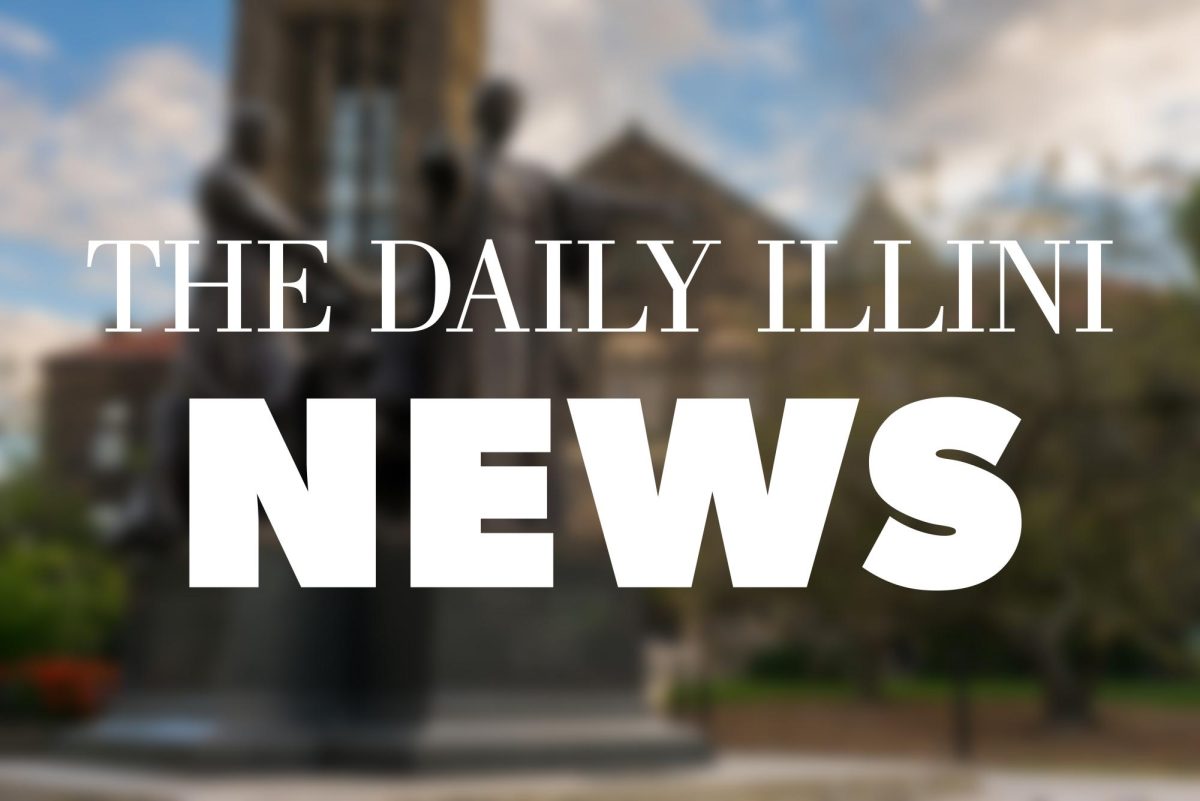University President B. Joseph White will meet with his staff and the leaders of the admissions office Monday morning to discuss possible issues in the admissions system.
The meeting is in response to an investigation by the Chicago Tribune that reported on possible unfair admissions practices.
On Thursday, the Chicago Tribune reported that White, Chancellor Richard Herman and many members of the Board of Trustees played a role in a “secret clout list” to admit students to the University based on their relationships with politicians, lobbyists or administrators, rather than their academic merits. The report included an admissions request for relative of convicted Antoin “Tony” Rezko that was forwarded on behalf of former Gov. Rod Blagojevich.
These special applicants were put on a special “Category I” list to be tracked by politicians and trustees.
University spokesman Tom Hardy confirmed this list exists. He said each year it contains about 100 potential students whose applications legislators and trustees have been asked to check on by constituents, typically parents or other relatives of the applicants.
Get The Daily Illini in your inbox!
“I want to have rock-solid confidence in the integrity of our admissions process,” White said. “I think we do. And if we find out we don’t, we will have zero tolerance for any problems.”
White said to his knowledge, no unqualified students were admitted to the University.
“The idea that I would forward an expression of interest on the part of a candidate is possible, that is something I do,” White said on Friday. “That does not constitute either pressure for admission, or an opinion on my part that a person should be admitted.”
State Rep. Mike Boland, (D-71) and chair of the House Committee on Higher Education, said he was shocked and angry when he heard of these issues and is now calling on any trustees and administrators involved to resign.
“Our higher education system should not be subject to political influences,” Boland said. “Accepting one person over another because of political influence is just wrong.”
When interviewed on Friday, Boland said he would speak with his fellow members of the committe over the weekend and send a letter to Gov. Pat Quinn immediately to demand he ask for the resignation or personally remove the involved parties.
“The job of the trustees is to protect the University,” Boland said. “Not to engage in behavior like this.”
Boland added that in his mind, White should resign if he was at all involved.
“In my eyes he should step down and a new Board should appoint someone else,” he said.
He said the idea of a special “Category I” for students with contacts in the legislature or on the Board of Trustees was astounding.
“It may not be illegal, but it was unethical,” Boland said. “It takes away from the good name of the University of Illinois. The U of I is very prestigious and we must protect that reputation.”
State Sen. Mike Frerichs, (D-Champaign) and State Rep. Naomi Jakobsson, (D-103), agreed.
“Students should be admitted on merit, not on outside influences,” Jakobsson said.
Frerichs said he thinks the University needs to review the admissions process.
“The important thing is that this scandal is making a public university the subject of political favoritism,” said Paul Schmitt, outgoing student trustee for the University.
For students who are denied entry to the University, this issue is much more personal, said Bob Foltin, post-secondary counselor at Stevenson High School in Lincolnshire.
“I was dismayed, but now I’m really not surprised,” Foltin said.
“We are in the midst of living in the state of Illinois where you are watching your governors go down right and left and watching Chicago politics. It doesn’t come as a surprise that the University joining in as well.”
Foltin said he has seen students with lower GPAs and ACTs accepted over students with higher scores.
“It’s one of those things you wonder if it goes on, and then once you find out it is happening,” he said. “It’s really sad.”
Alex Forrest, a junior transferring from Parkland College, said she feels personally affected if other students received privileges during admissions that she did not.
“When I first applied to (the College of) Business as a freshman, I didn’t get in,” Forrest said.
“So I think it’s unfair that they were let in, and people doing it the right way couldn’t be let in.”
State Sen. Ed Maloney, (D-Chicago) and chair of the Senate Committee on Higher Education had a different opinion on the admissions issues raised by the Chicago Tribune.
“The University does a pretty good job with admissions,” Maloney said. “They are under a great deal of pressure.”
Maloney said he has made inquiries to find out why a student was wait-listed or denied admission, but he has never asked for student to be admitted.
However, according to Sunday’s Chicago Tribune report, Maloney was listed as one of the state lawmakers who made the most admissions requests. Of the 15 requests he made, the Chicago Tribune reported that seven of these students were known to be admitted to the University.
Maloney said he does not believe the controversy will have any impact on the University and that admissions standards have not been compromised, but he did not know the full extent of the problem.
Maloney also said he did not know “Category I” existed.
White said while the University may decide to eliminate “Category I” grouping in the future, he said he feels it is important to track the progress of certain students through the admissions process.
Herman agreed.
“Admissions is not a science,” Herman said. “We’re in the middle of absorbing this and figuring out the best way to proceed.”
He also said that the Chicago Tribune article took the issue out of context and only showed part of the larger, complex admissions picture.
“The fact that there are pressures around admissions issues is nothing new,” said former University President Stanley Ikenberry. “How the University deals with those pressures is another matter.”









